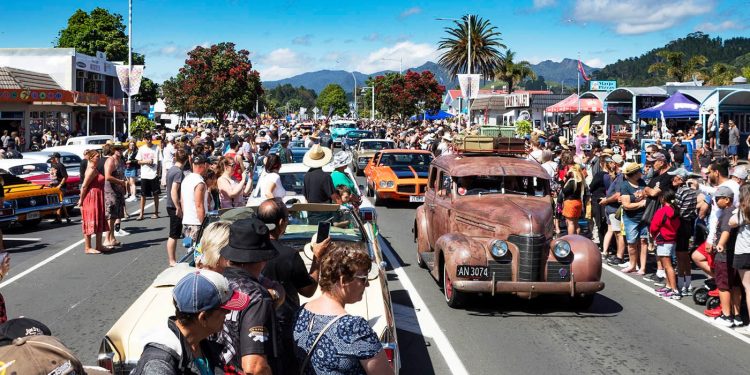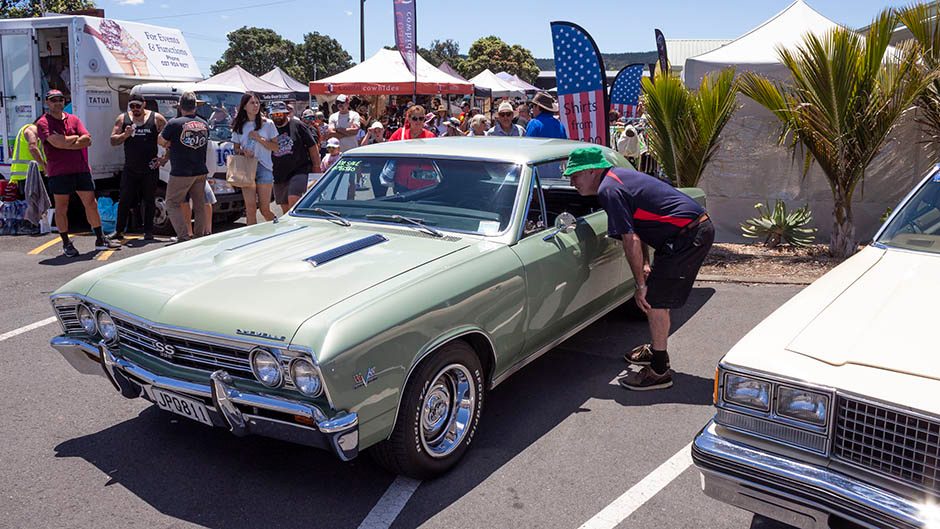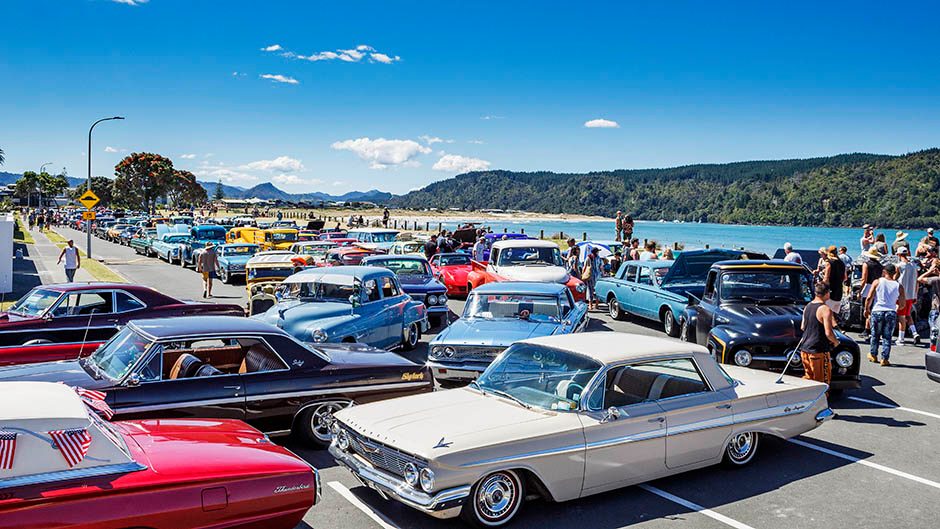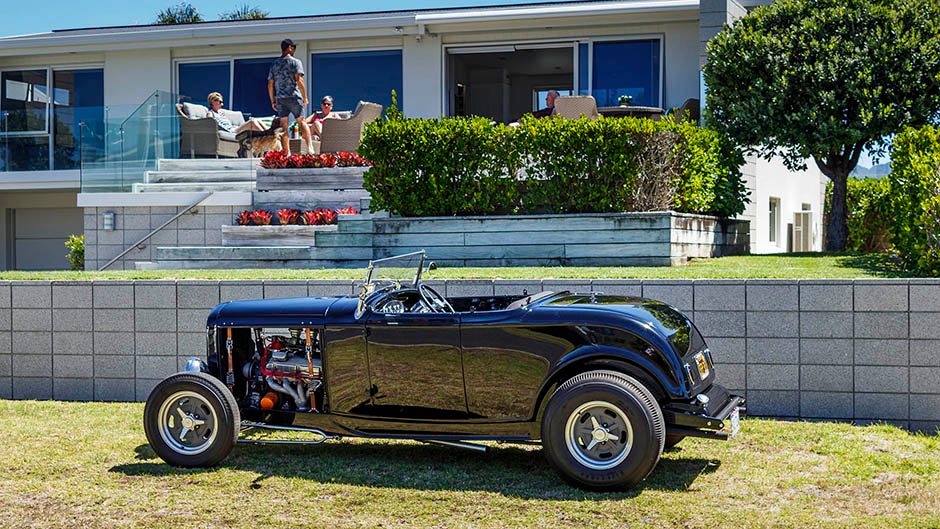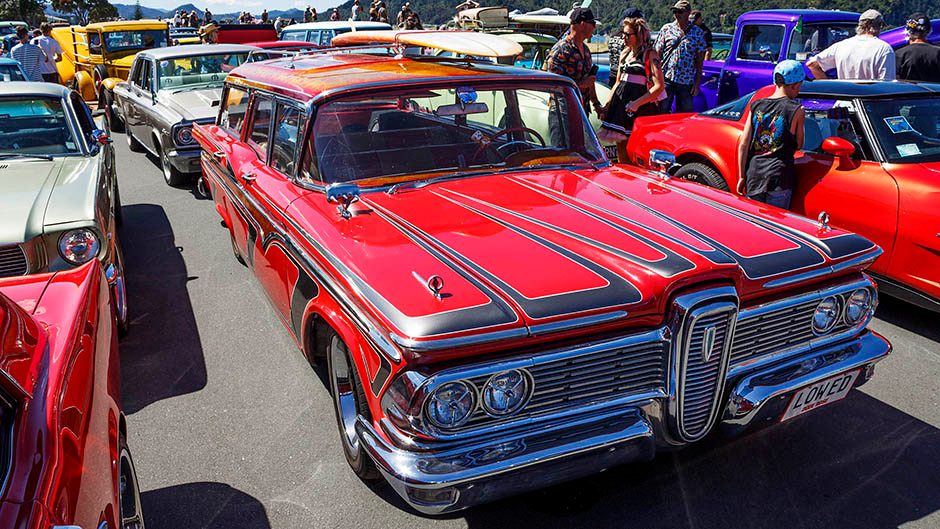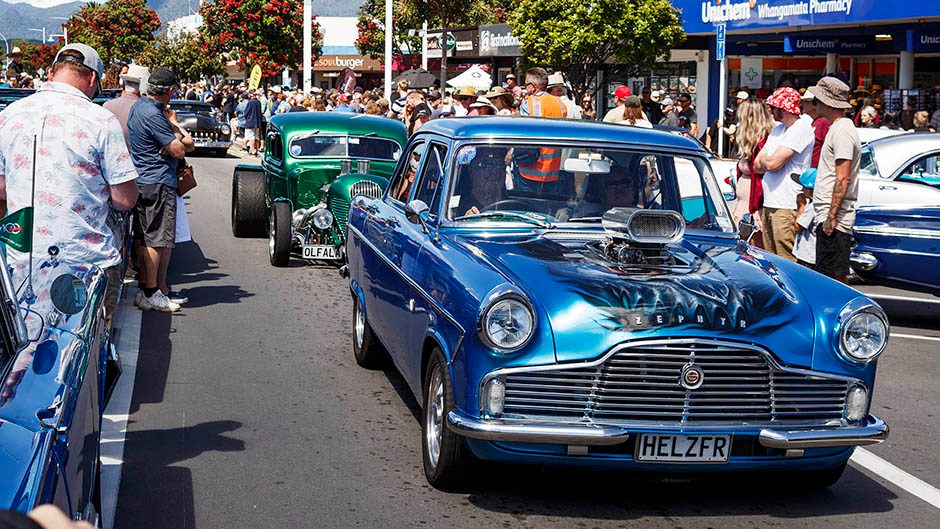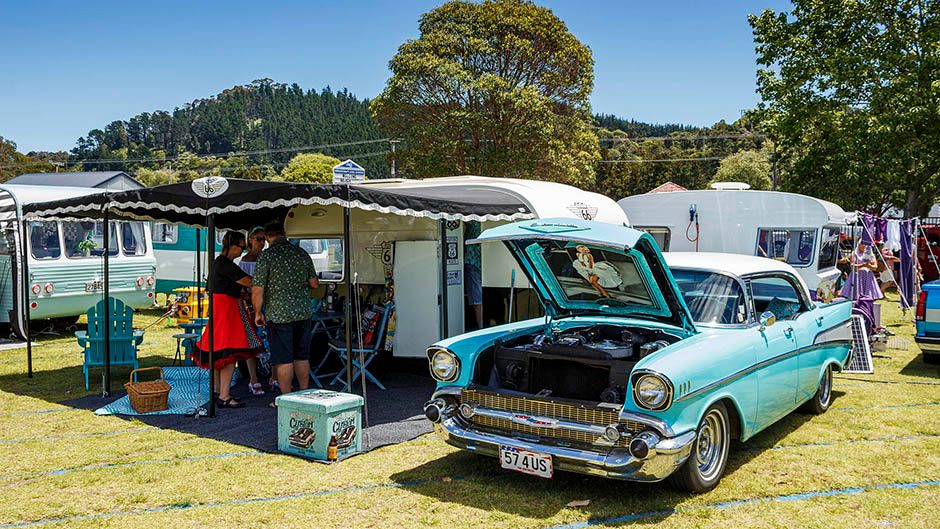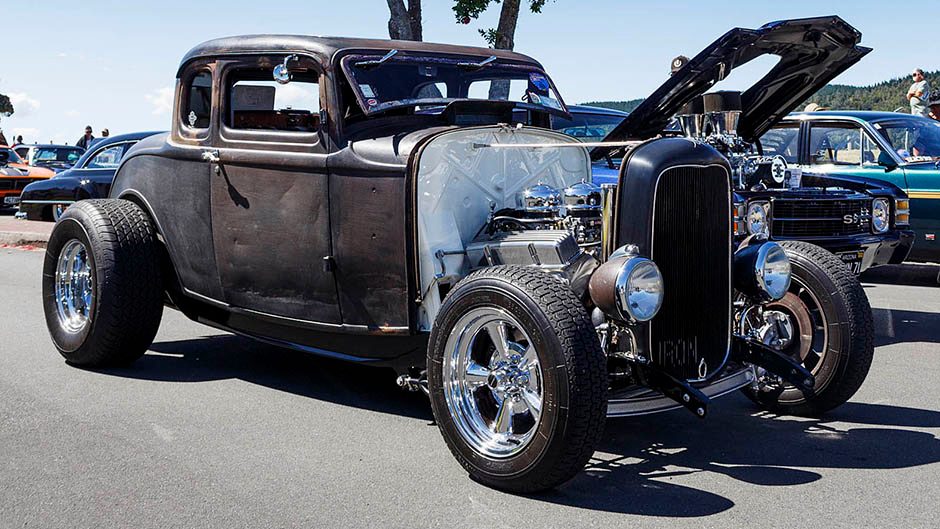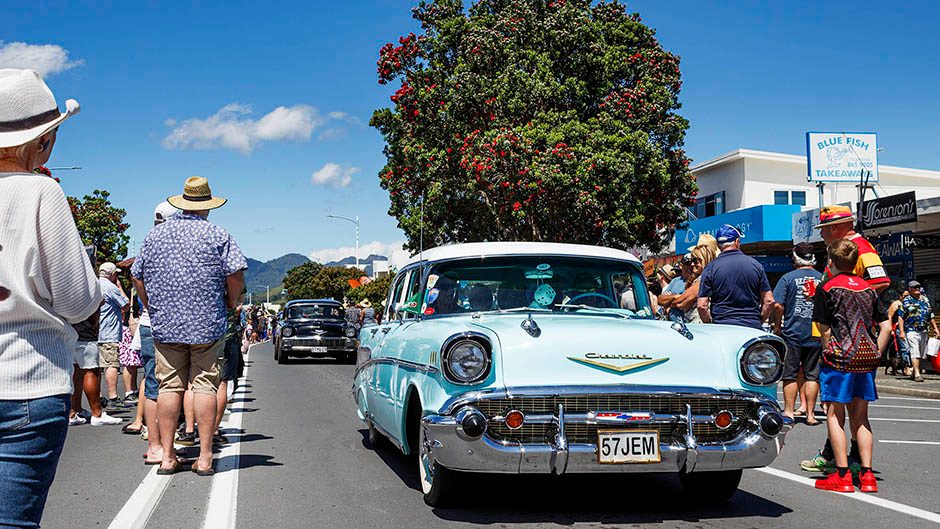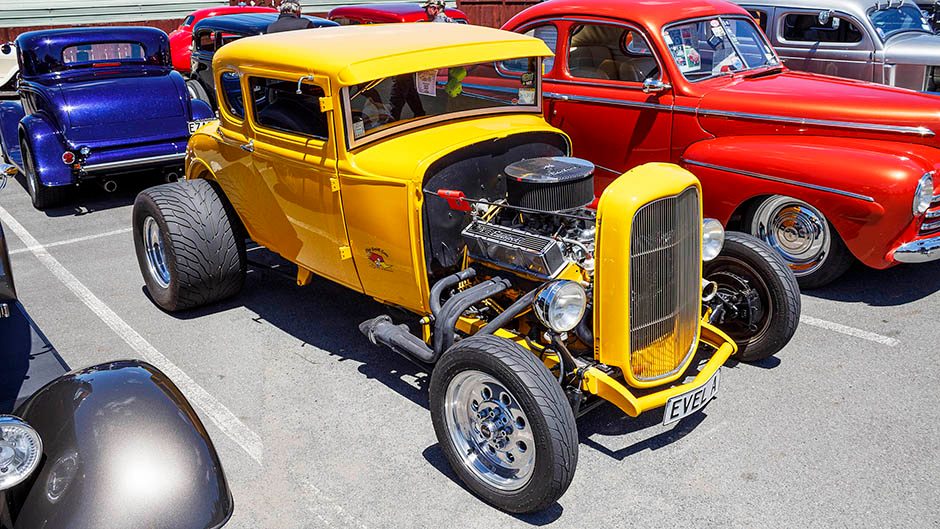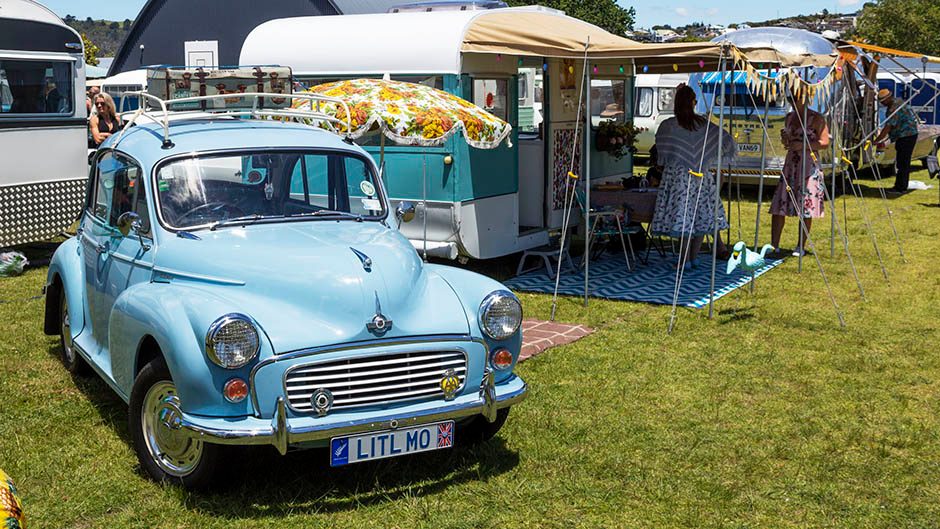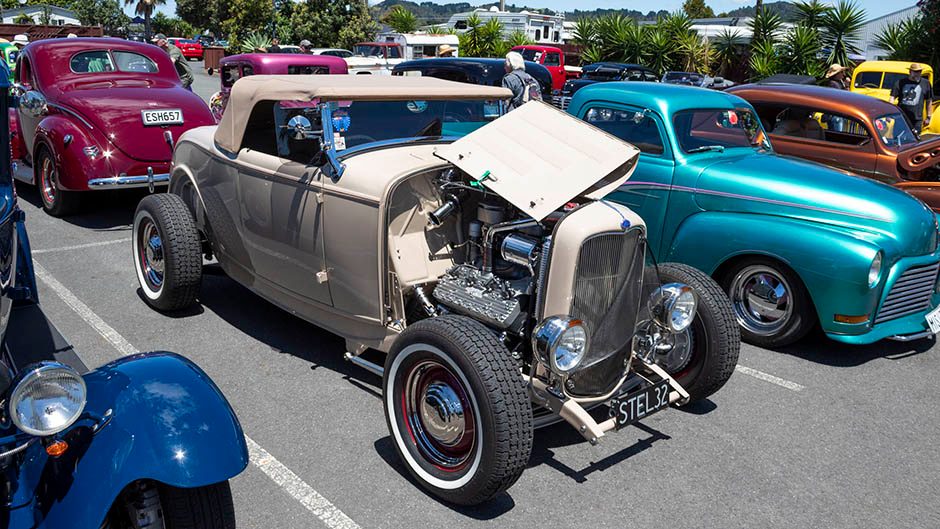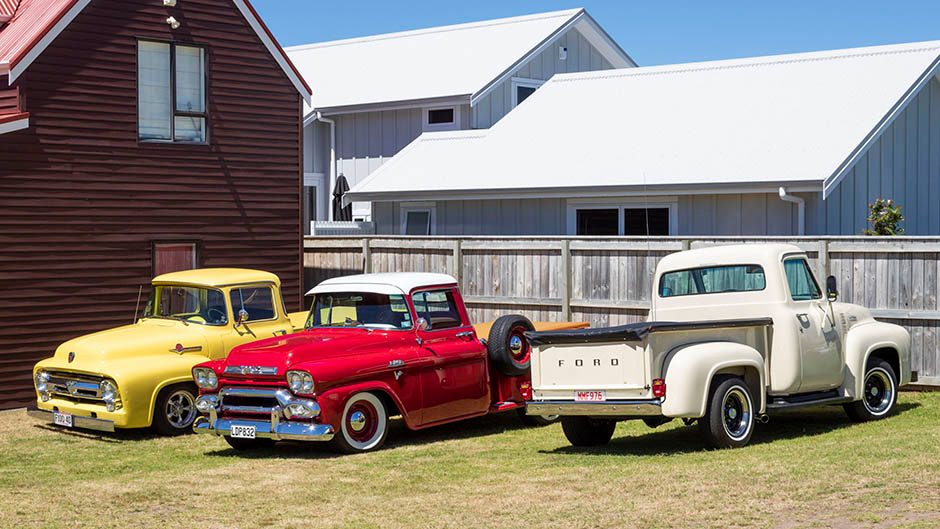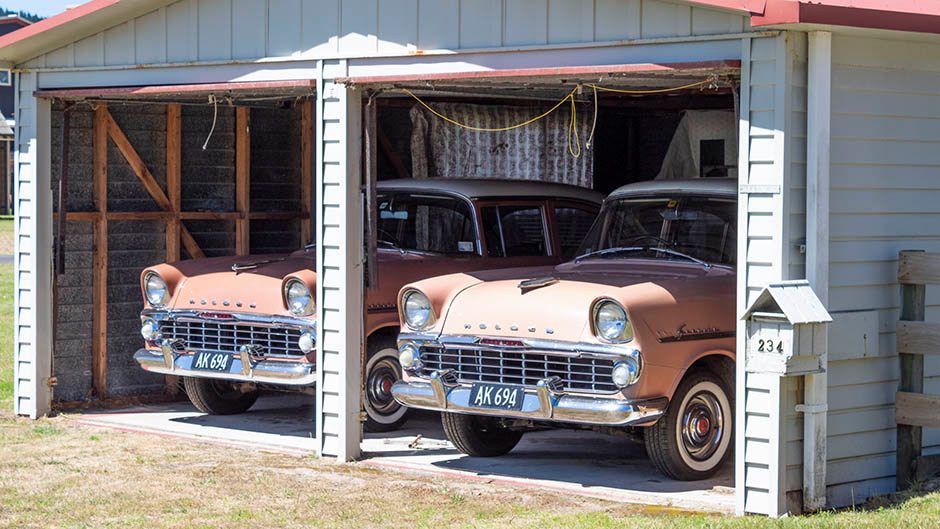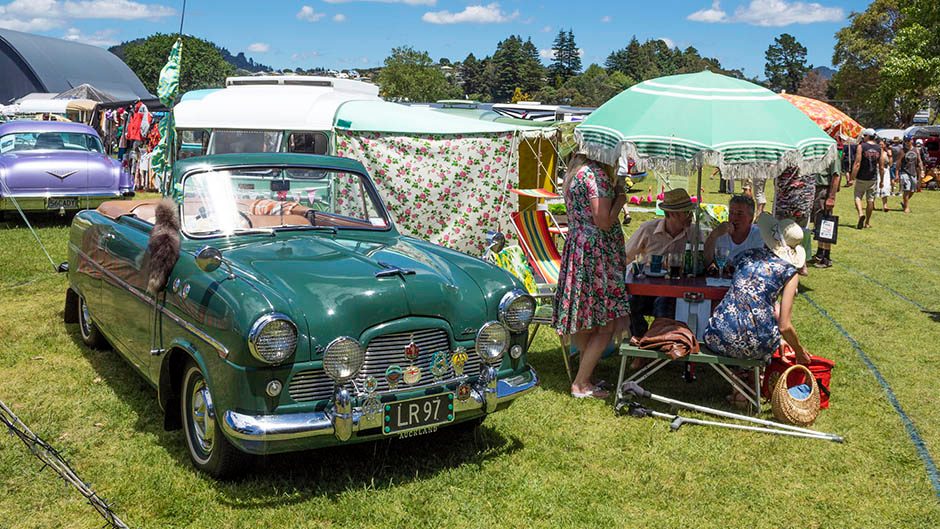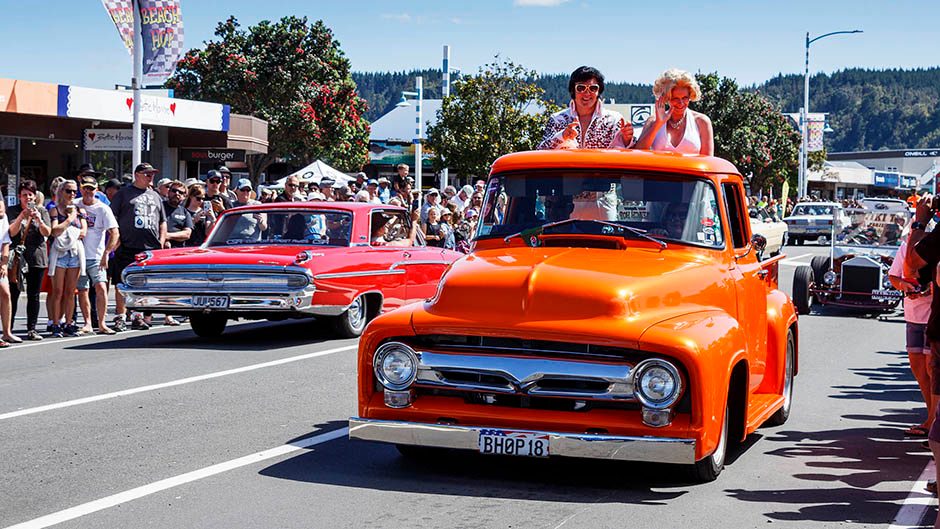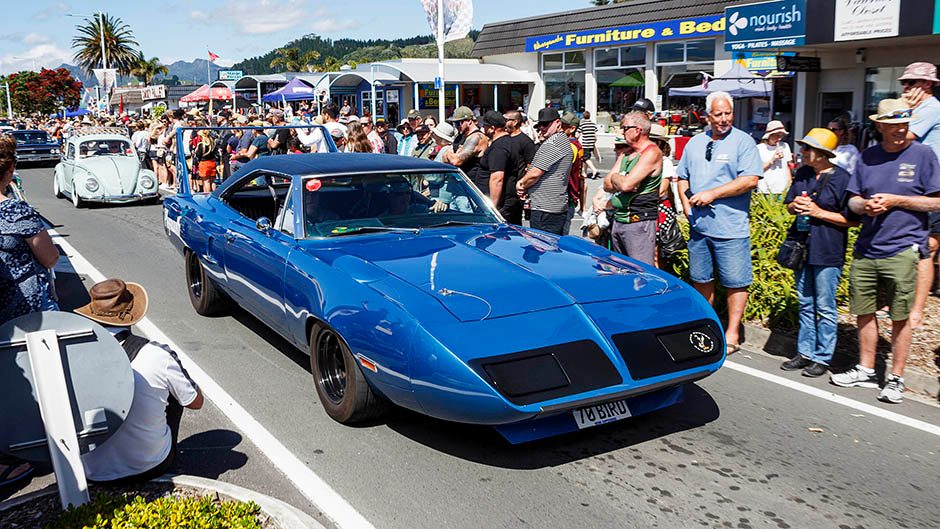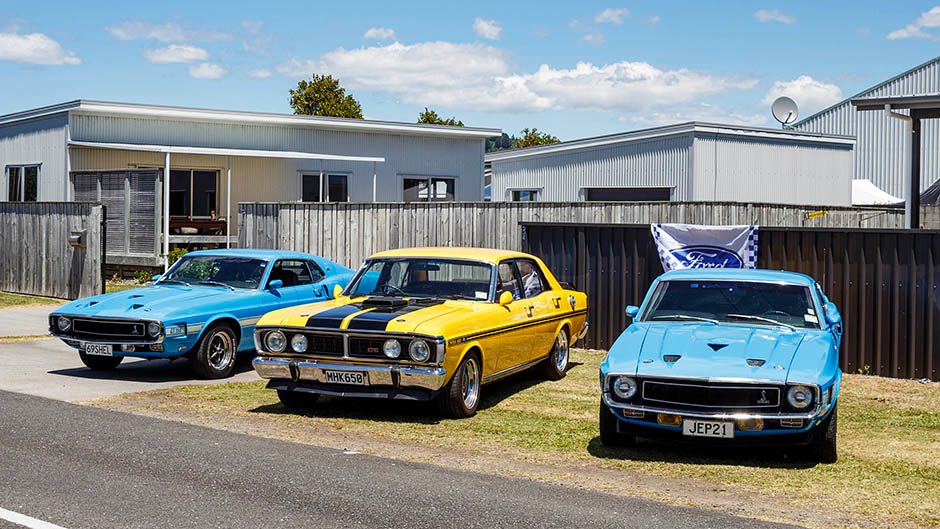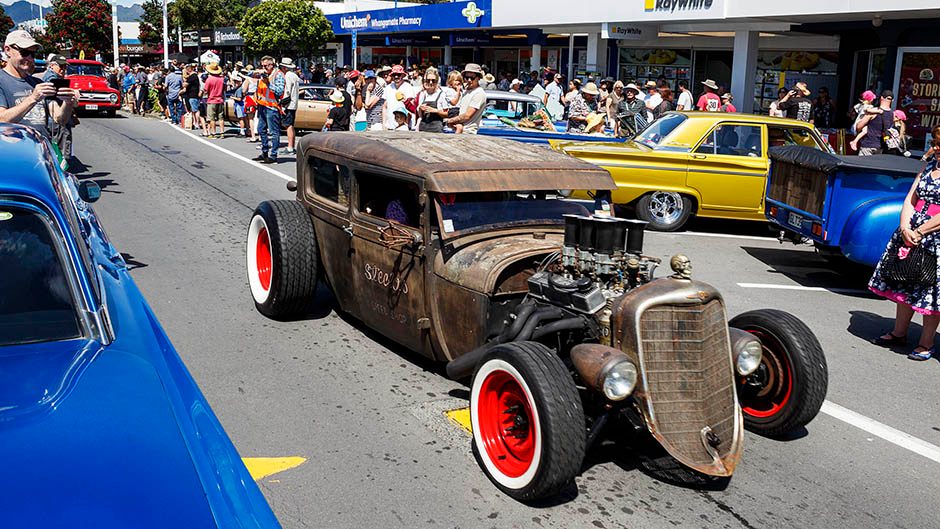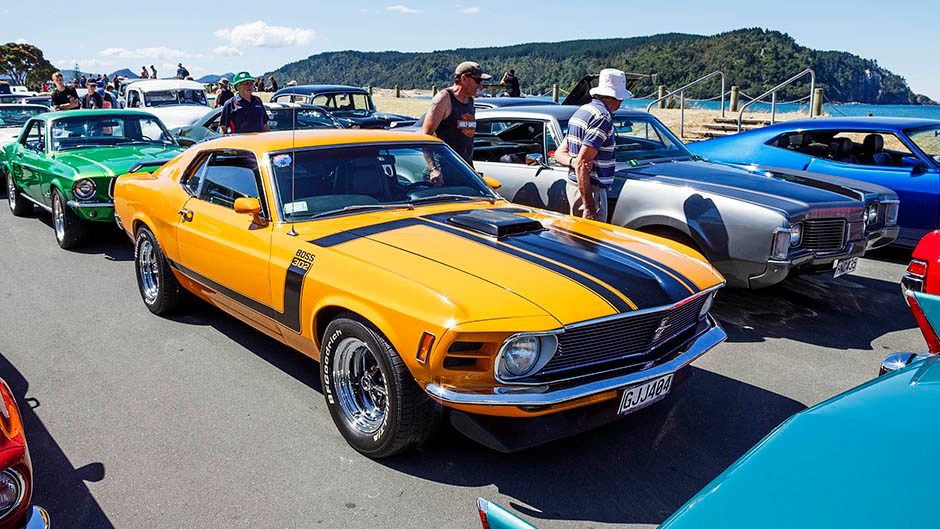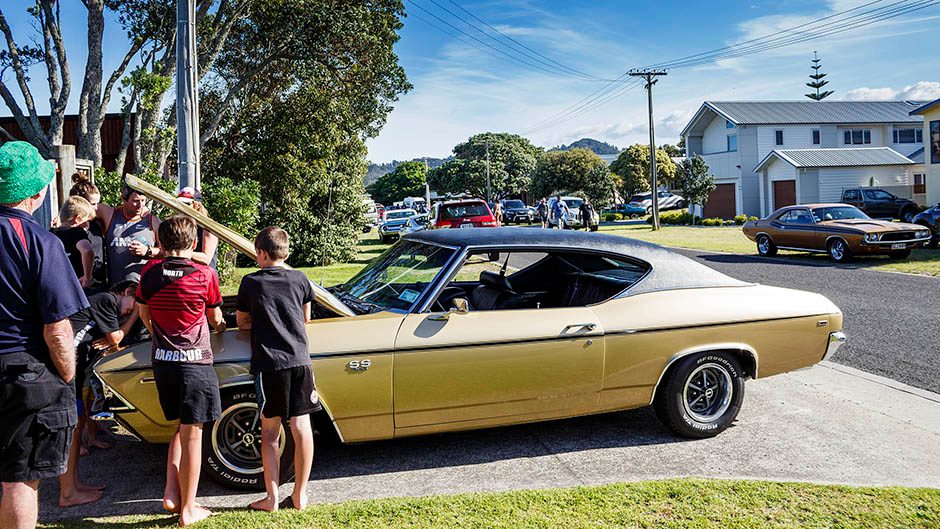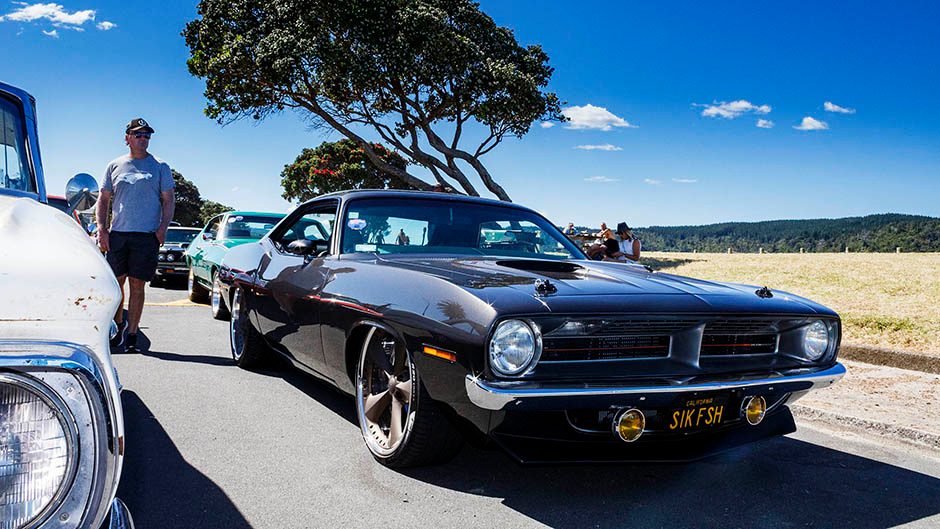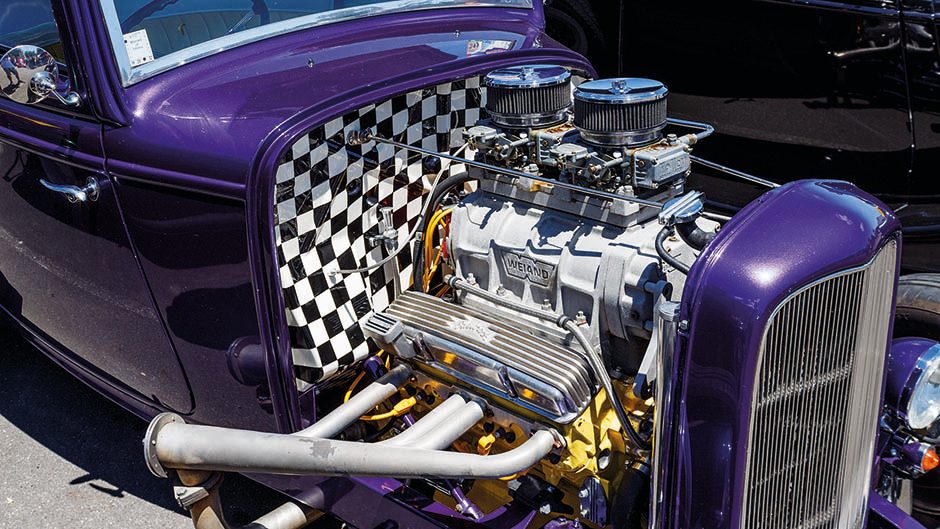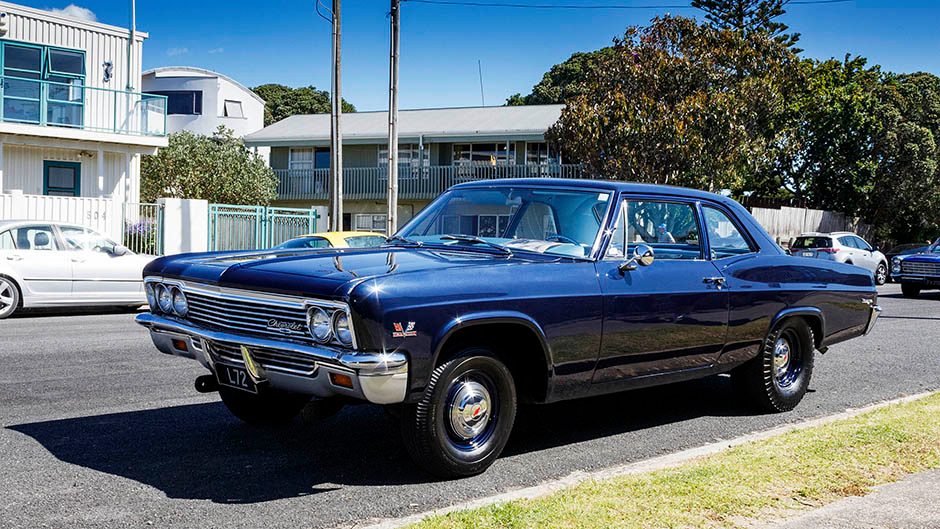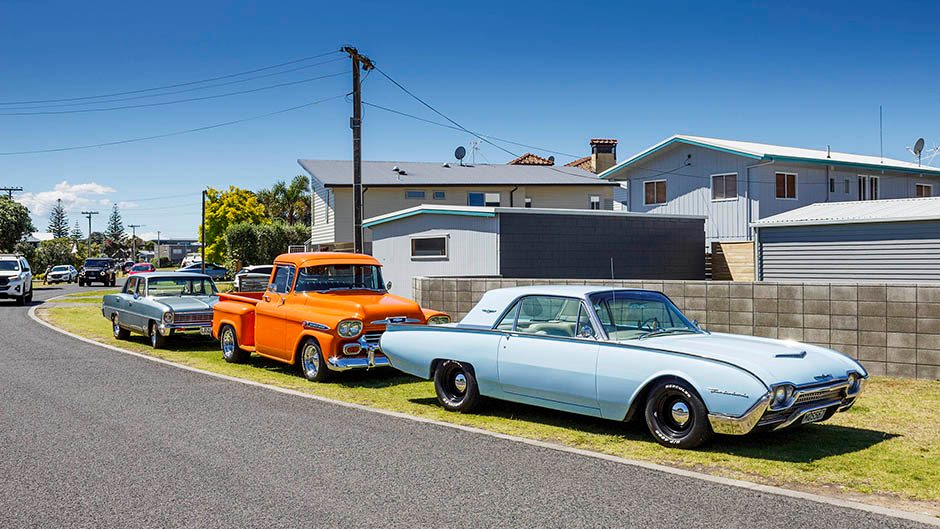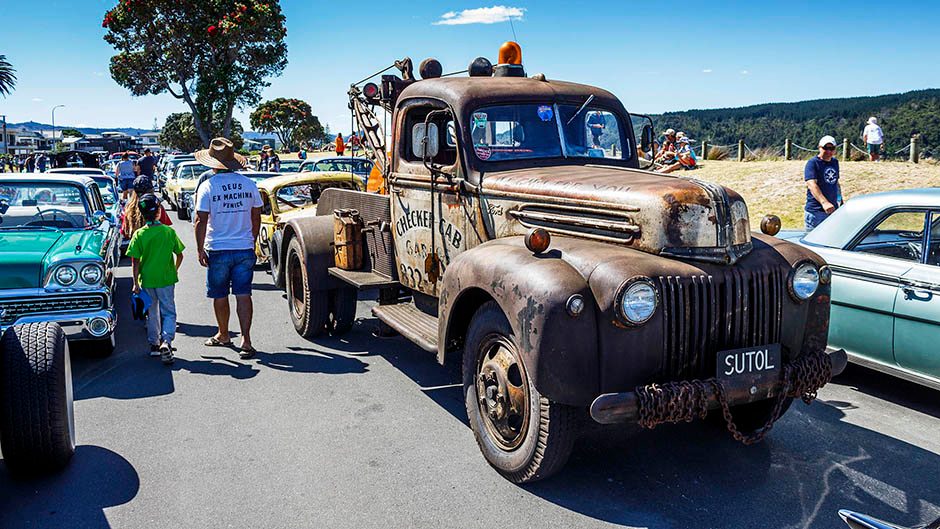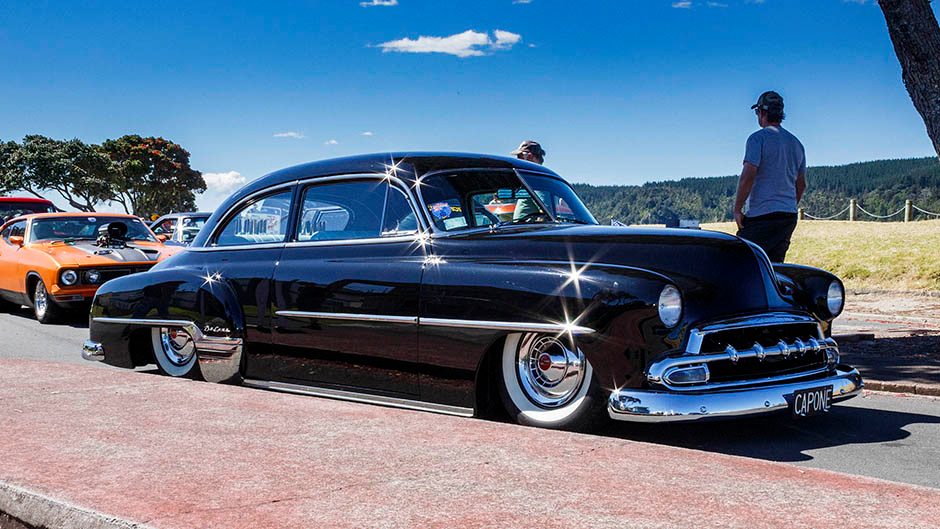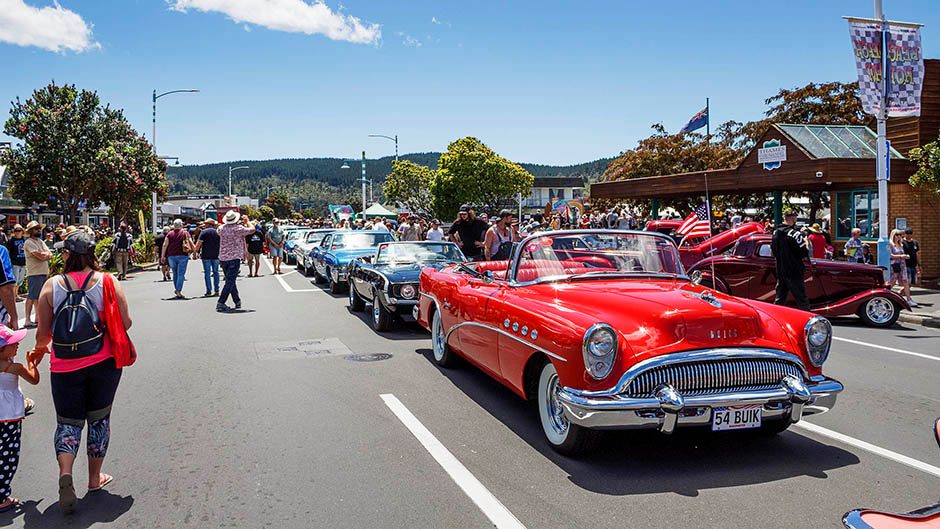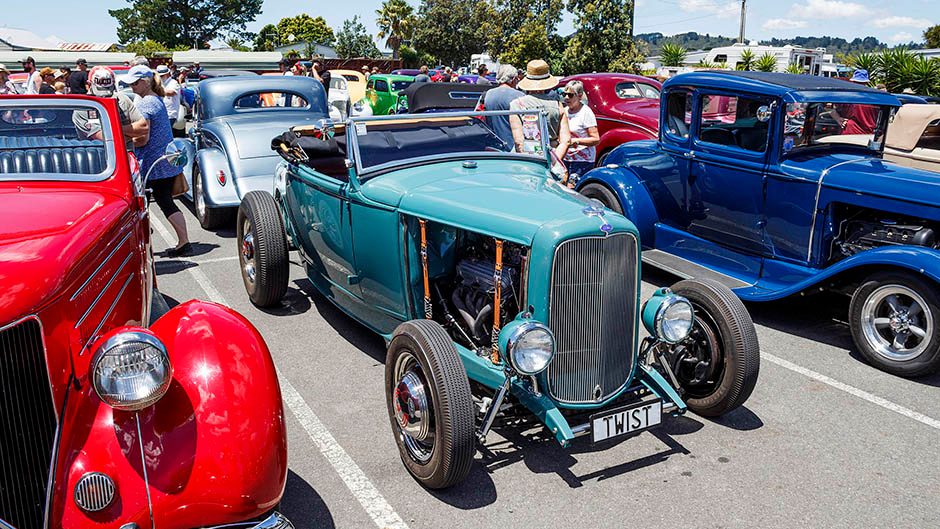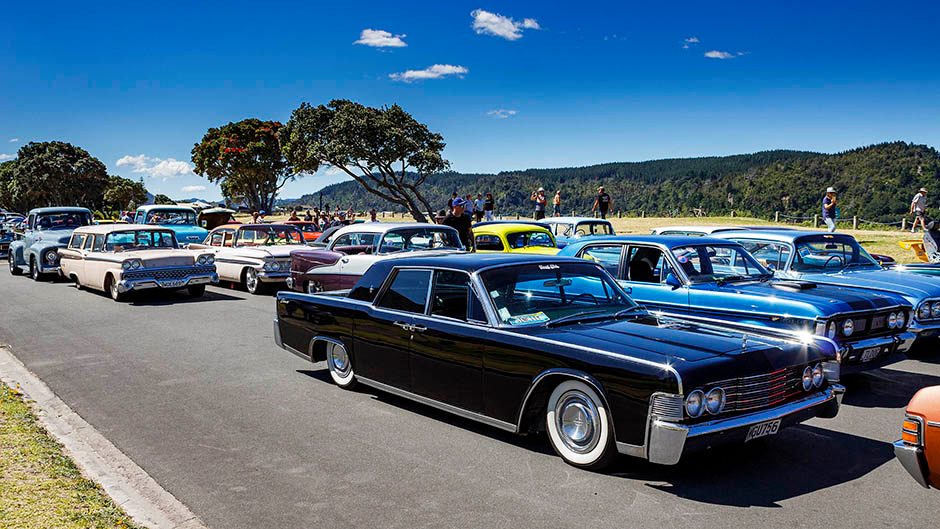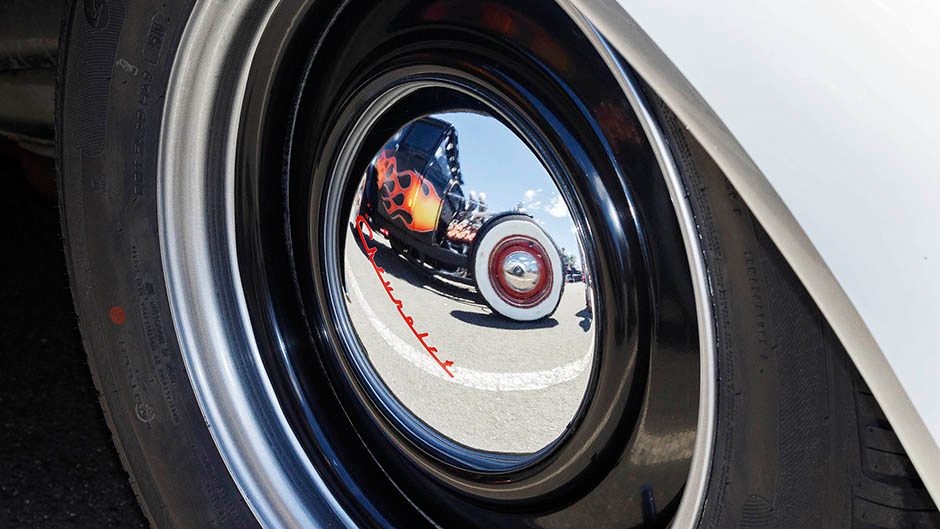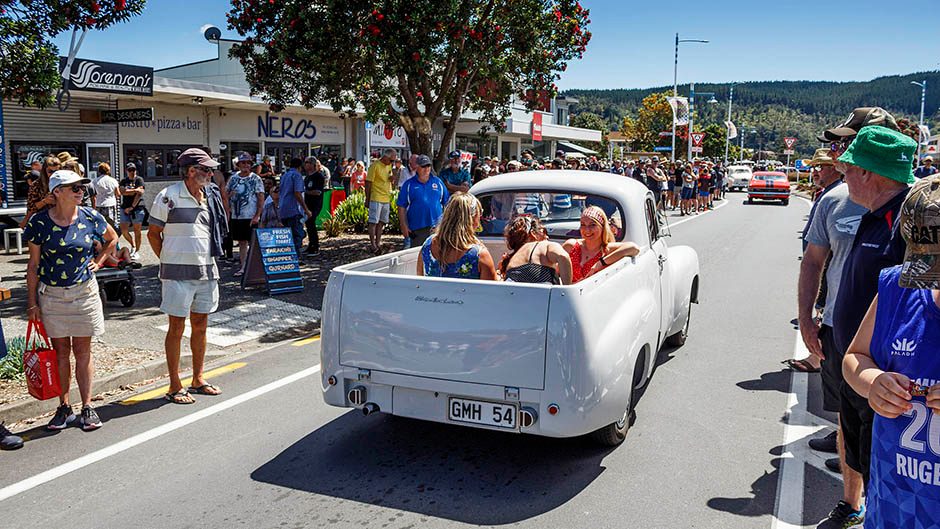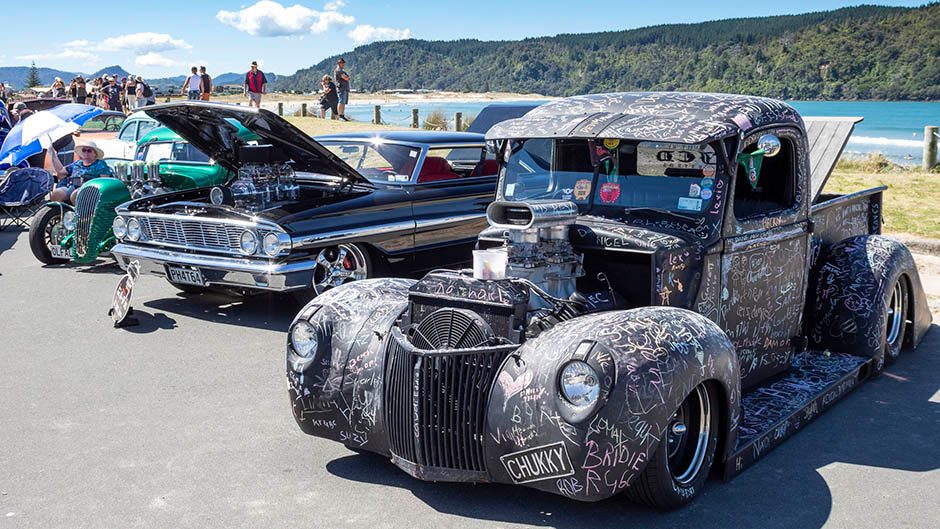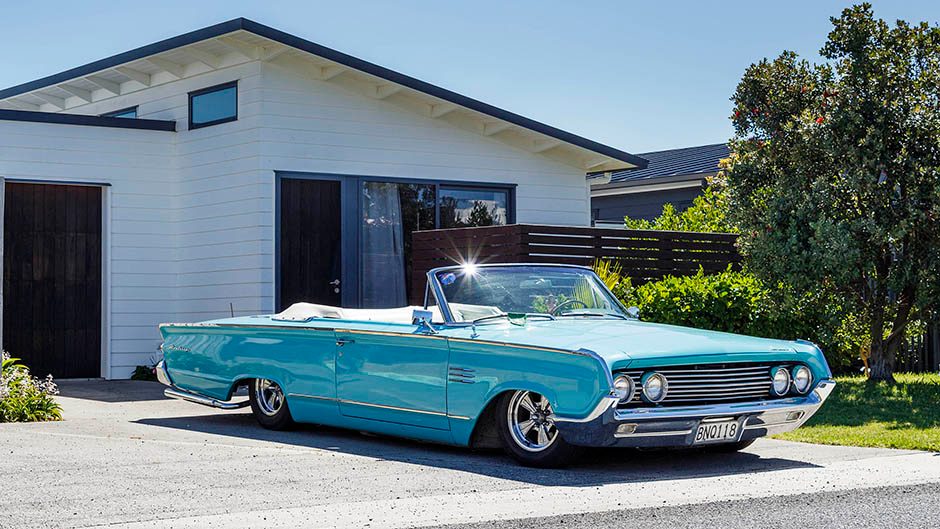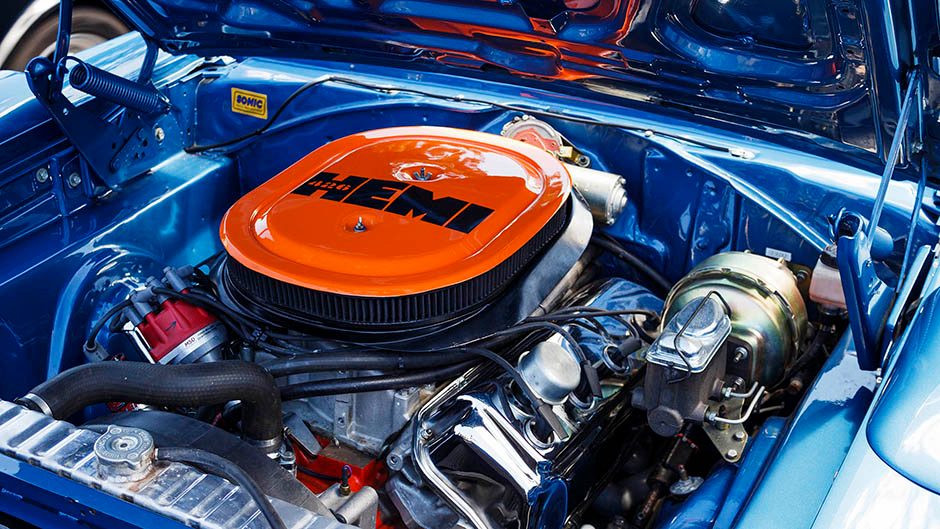2020 Beach Hop – Still hoppin’
Words Kyle Cassidy | Photos Kyle Cassidy
It’s been dubbed Australasia’s largest car festival and Whangamata’s beach hop has been proving popular for 20 years. We went along to check it out.
The great Covid-19 pandemic has disrupted everyone’s life this year, and even the country’s biggest car festival was not immune. Scheduled to go ahead on March 25th, the organisers of the long running Beach Hop made the big call to postpone the event just a few weeks before its running. It wasn’t the best way to mark 20 years of being, but it turned out to be the right one. If you haven’t already blocked it from your memory, that was the day we entered Level 4 lockdown. Moving the festival to November may have felt strange for the faithful that turn out every year but the weather played ball and a decent crowd still turned out.
The Hop kicked off back in 2001 and was originally called the Whangamata Rock’n’Roll Festival, which has always been the primary focus of the event. They had bands playing and a few thousand people turned up to swing the night away. Adding to the culture of the gathering, the Matamata Rod and Custom club was invited to send their hot rod run up to Whanga with 100 cars turning up. They call it a nostalgia festival, celebrating the fifties and sixties, chiefly the music and the cars. The name changed to the Beach Hop the next year, and the cars became an increasingly popular part of the show. Since 2014, the number of cars officially permitted into Beach Hop has been limited to 1000 to help ease the running of the event.
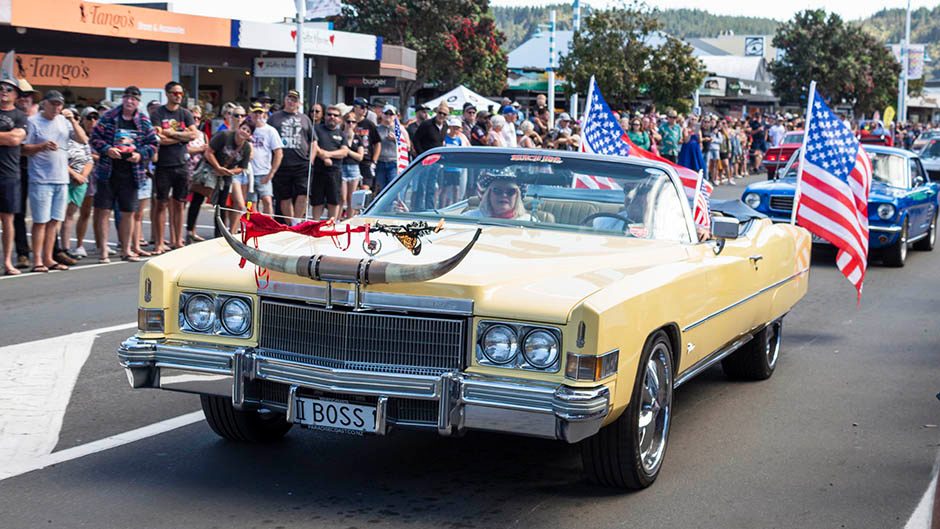
The festival stretches over five days and is still based in Whangamata but spreads the love to other towns around the Coromandel with the cars cruising to Waihi, Whitianga and Onemana on Wednesday, Thursday and Friday respectively. They return to Whanga each evening to rock out during the night. Music is still a big feature, with many bands playing during the day and into the night. The closed borders meant there were no international acts for the rock and rollers to enjoy this year, but there were still plenty of local acts to keep ’em interested. For the novices, there are even Rock ‘n’ Roll lessons so you can learn the Rockabilly Stroll, and refresher courses too for those who can’t quite remember how to do the peppermint twist.
Saturday is the big day for Whangamata with the Grand Parade up the main street where the cars are then parked in situ throughout the day and spilling out around to the surf club. There’s not only those cars registered to take part in the festival but many, many more parked up in the streets and cruising around. There’s literally thousands of cars to check out. And motorbikes, plenty of those as well. Retro caravans were introduced in 2011 and they’re something else to spend time looking at, with over 100 on display. An added extra for this year’s event was free Covid-19 testing.
For the average punter, it’s a great gig, given it’s absolutely free. You’re obliged to buy one of the official programmes so you know what’s going on, but inside is your ticket to win one of the Beach Hop prizes. Giveaway cars have been a regular feature of the event, with more than 30 vehicles given away over the years. This year’s prizes were a 1965 Mustang convertible, a 1923 T-bucket and a Harley Davidson Street Bob.
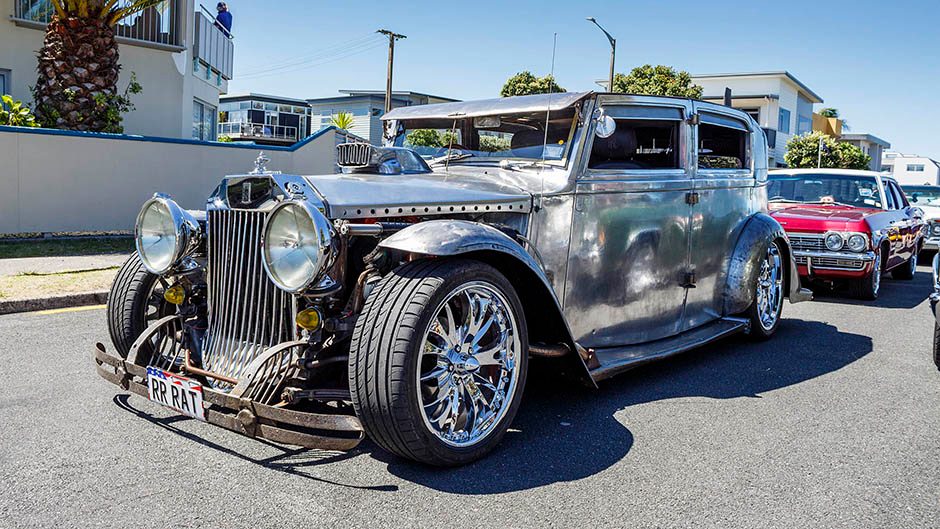
Cars need to be pre-1972 to be eligible to enter, but the event is not just restricted to American or Australian muscle, although they dominate the entries. There are a few Euros in the mix, mainly Volkswagens, but there was the odd Morris and we even spied an old Fiat and a Datsun. They say later model American cars can be entered at the discretion of the organisers, but most would agree that the Yanks lost their way through the late seventies and early eighties.
All entrants have to be pre-registered, and you have to be quick. Entries for the 2021 event (back to its usual 24th-28th March time slot) opened just a few days after the 2020 show wrapped up and, according to the Facebook page, 500 vehicles had registered in 20 minutes, with 750 vehicles entered in two hours. The retro caravan sites were gone in 40 minutes. This event is hugely popular.
No real surprise that the Ford Mustang is the most popular car at Beach Hop but there is plenty of GM and Chrysler iron too. Figure on the usual Camaros, Impalas, Belairs, Chargers, Challengers, a few Holdens and Fords from across the ditch, low riders, hot rods, rat rods, pick-ups, trikes, even a tow truck. There are some show stoppers, polished to a sheen and others that could do with some love, though that would ruin that hard won patina. A Rolls Royce rat rod sure got people stopping. But there are thousands of cars parked up around the place, a big 1966 Chevrolet Biscayne taking our eye with its rare L72 427 V8, four-speed manual and fat drag tyres on the rear.
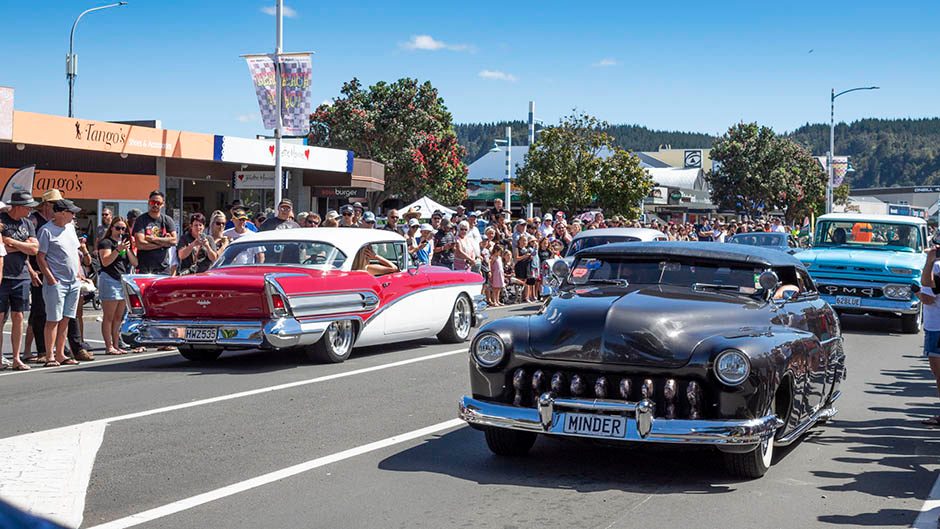
Though cars have to be registered to take part in the week’s cruises and events, you can enter for the Saturday car shows on the day. Or just drive your classic machine down to Whanga, cruise around the streets and park up, you’ll feel like part of it anyway. It’s not that expensive to enter with prices ranging from $80 to $290 depending on what you want to do.
We cruised down from Auckland early on the Saturday morning and had absolutely no trouble getting in and around the place, and arrived well in time for the parade, which kicks off at 10.15. Finding a place to stay is more problematic with accommodation booked out well in advance and bach owners charging a pretty premium for the week.
There are lots of things to spend your money on with various stalls set up, though there aren’t a lot of food options but long lines for the few places that make the effort. The festival organisers have a policy of restricting food outlets to community groups, with just the odd sausage sizzle about, and leaving the rest to the local cafes.
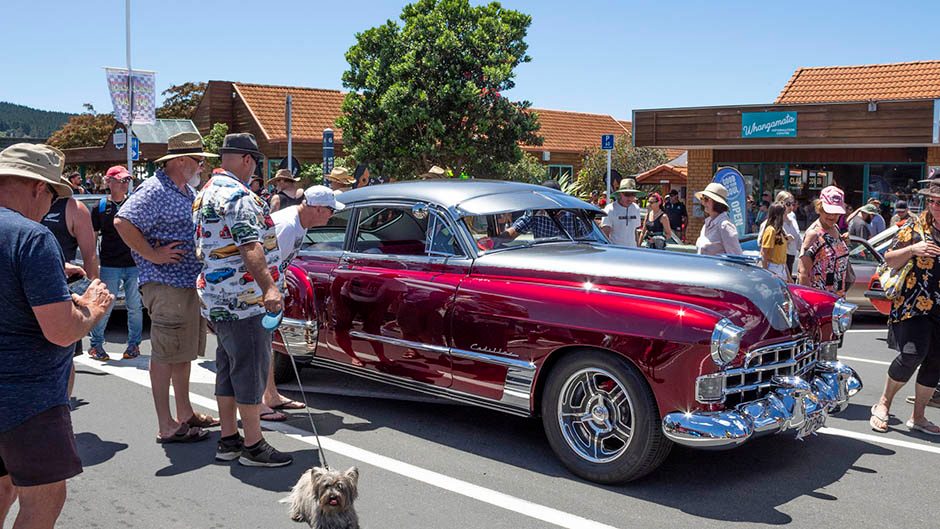
We had no issues getting a cold one at the Whangamata Club however. The festival imposed an alcohol ban early on in 2004 as booze and cars never mix well. But judging by the dusty looking crowd on the Saturday morning, plenty gets consumed over the weekend. And it’s no burnout competition; get caught and you’re out of the festival for life. The cops will likely have something to talk to you about too, with more than a few rolling around the place. But it lends a family-friendly vibe to the day, the distinct lack of drunk dickheads a pleasing one. There is plenty of engine revving going on, as the Greens haven’t outlawed that just yet.
As for the kids, well unless you pull them around in a kart, or they are diehards with genuine stamina, they could prove problematic. It’s a big event, spread out over the town, so you get plenty of walking in. But it is family friendly with many of the cars packed with multi-generational whanau. And the entrants span many decades from those that look like they can remember the rockin’ fifties to those that more likely listened to Rage Against the Machine in their mis-spent youth. There’s a good sense of community spirit about the day, though the idea of thousands of gas guzzling machines travelling many a mile to converge on a beachside town means you’re unlikely to spy James Shaw and co. amongst the crowd.
Which makes you think will an event like this be viable in another 20 years? Guess some of those classics might have to be converted from gas to volts. Maybe the government could start up a ‘convert your classic’ fund, though we are not sure there would be that many takers.


